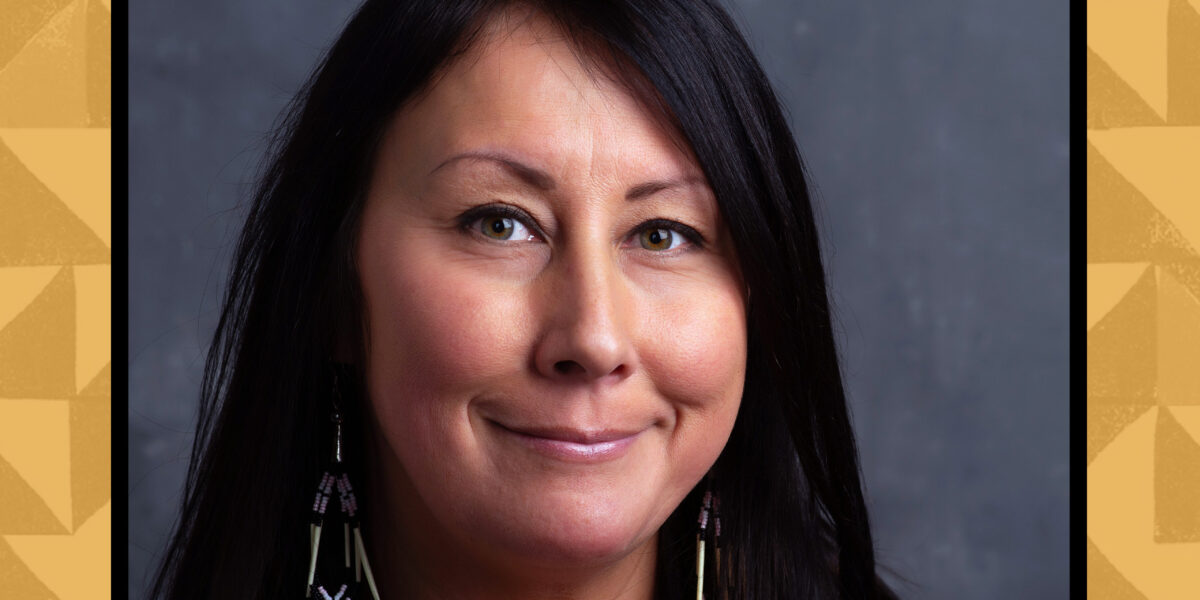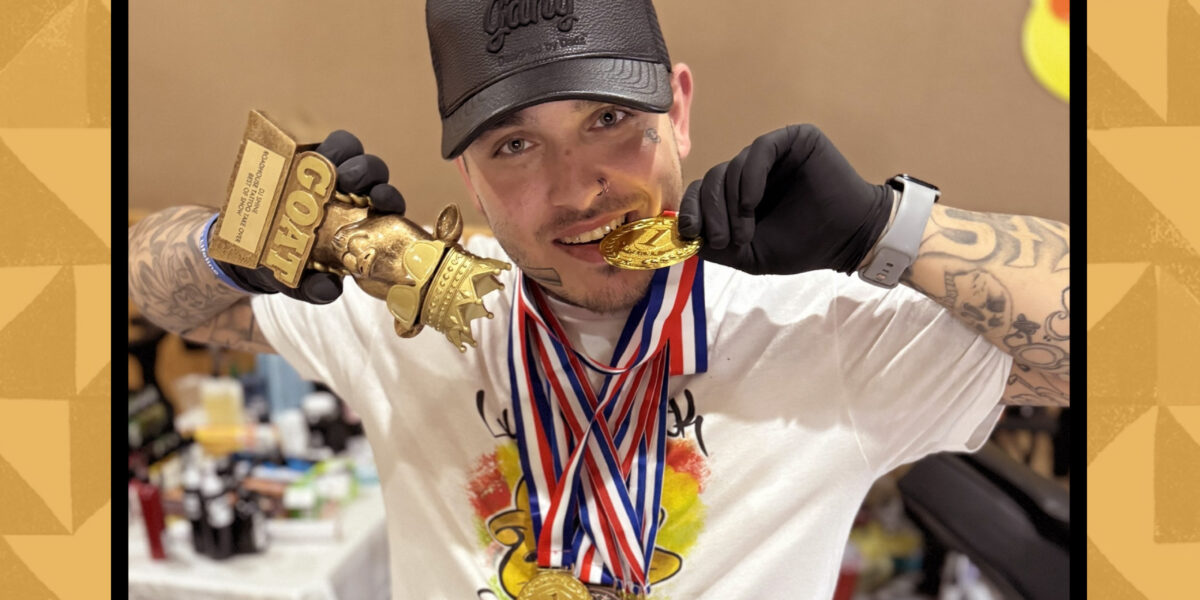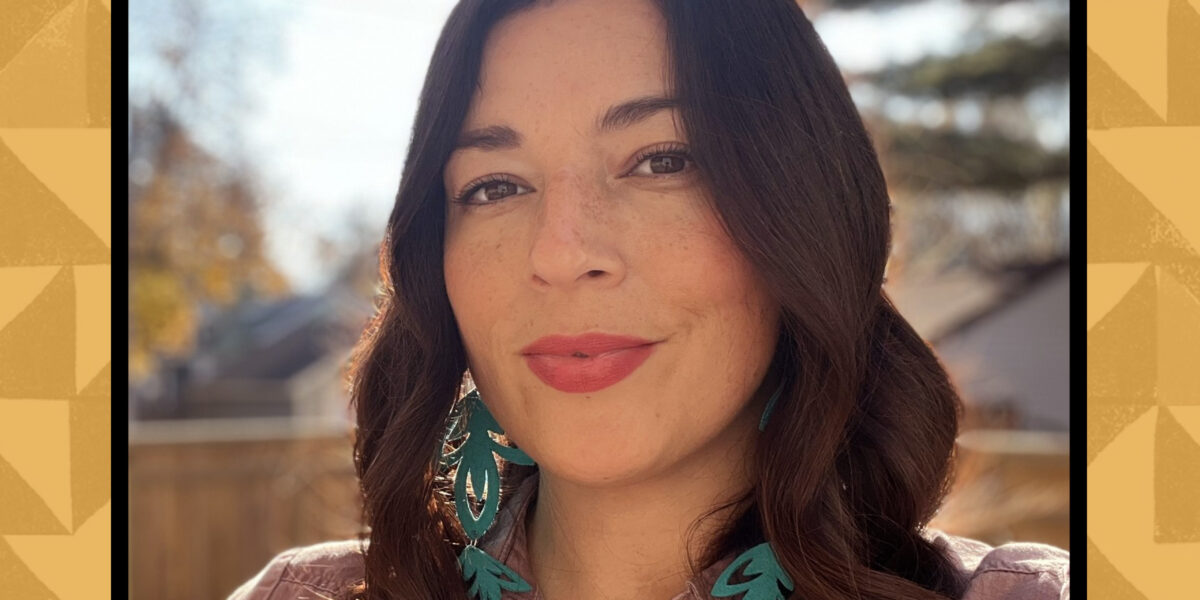
| This week, Migizi Communications celebrated the grand opening of its new building. Minnesota Native News had the opportunity to visit the new location. Deanna Standing Cloud has the story of what goes on there and what it took to get Migizi back on Lake Street. |
Deanna
Migizi Communications is an after-school program for Native youth. It teaches digital storytelling and offers job training, academic support, and cultural teaching. The past couple of years have been tough for Migizi as they searched for a new home. Its former home was lost during the unrest following the murder of George Floyd in May 2020. The community tried to protect it, but the whole block was burning and they were unable to save it.
Binesikwe
We held healing sessions afterwards, we really tried to bring community together.
Deanna
Binesikwe Means is the lead instructor for First Person Productions, one of Migizi’s flagship programs.
Binesekwe
We cried with our students, because of the loss of our building, we really tried to grieve it together in a healthy way and then we had to look forward to the future. I’ve been with Migizi for six and a half years, and I’m an enrolled member of the Oglala Lakota tribe, as well as a descendant of White Earth.
Deanna
After the fire, President Kelly Drummer worked diligently to find a permanent location in South Minneapolis. Migizi raised funds and worked on the design.
This week, they celebrated their move into their renovated new home.
Binesikwe
It was community and community only that really helped and pushed us to rebuild after the loss of our building. This open house is really a thank you to community and to the people who really stepped in at a time where were hurting and unsure of where the future was.
Deanna
The building is located at 1845 East Lake Street, across from the Minneapolis Pioneers and Soldiers Cemetery, where some of Minnesota’s first colonizers are buried. Migizi’s new light-filled headquarters used to house the Little Brothers-Friends of the Elderly. Binesikwe kindly gave me a tour of the new digs.
Binesikwe
This is our open space or CLAW area. CLAW is our Cultural, Leadership, and Academic W ellbeing programming.
Deanna
The youth participating in Migizi programming have access to a wide variety of amenities.
Binesikwe
Because some of our students struggle with housing stability, we also included laundry into our space, so a washer and dryer.
Deanna
Students will also have the ability to eat together.
Binesikwe
Here is our commercial kitchen. Every evening, we provide snacks , a lot of our students come out of school hungry.
So this is our Best Buy Teen Tech Center and share space with First Person Productions program. We have a full studio setup, we’re waiting on a few more guitars and live action movie stuff to be coming in.
Deanna
All the technology available to students really reflects Migizi’s origin story.
Binesikwe
The opening of the studio, for me, it is really a step back into where Migizi first started, which was on radio and how important it is for accurate storytelling as well as the ability to build the next generation of storytellers.
Deanna
However, the contemporary narrative in the 70’s when Migizi originated was told by the colonizer’s experience. That’s what Migizi’s founders wanted to change.
Binesikwe
They founded the program initially to be a journalism program because they wanted to raise the next generation of Indigenous storytellers. They seen the inaccuracies and misrepresentation in the media of indigenous people. And they wanted to train people from our community to tell the stories of our community.
Deanna
Migizi makes their programming accessible to Native students, so being on Lake Street was important to them. Nearby South High school has a high concentration of Native students, so they wanted to be within walking distance or easy to get to on public transportation.
Migizi Communications has helped transform the lives of Native Students. Former students have become leaders and storytellers in the community. Migizi hopes they can now call 1845 Lake Street their “forever home.” This is Deanna StadingCloud with Minnesota Native News.
MARIE
You can learn more about their programs at Migizi.org.
More from Native Lights
- Dr. Amber Annis: Rebuilding Community with the Native Governance Center
 In this episode, we hear from Dr. Amber Annis about the joys and challenges of rebuilding community and finding your voice as a leader. Dr. Amber Annis is a citizen of the Cheyenne River Sioux Tribe and the Executive Director of Native Governance Center. Prior to taking on her role at NGC in December 2024, …
In this episode, we hear from Dr. Amber Annis about the joys and challenges of rebuilding community and finding your voice as a leader. Dr. Amber Annis is a citizen of the Cheyenne River Sioux Tribe and the Executive Director of Native Governance Center. Prior to taking on her role at NGC in December 2024, … - Deven Current: Healing Through the Art of Tattooing
 In this episode, we hear from Deven Current about tattooing, sports and the importance of sobriety, family and faith. Deven is an Ojibwe tattoo artist, who connected with his culture later in life. Deven grew up in the Twin Cities and, at a young age, fell into drug addiction. He ended up incarcerated, but his time …
In this episode, we hear from Deven Current about tattooing, sports and the importance of sobriety, family and faith. Deven is an Ojibwe tattoo artist, who connected with his culture later in life. Deven grew up in the Twin Cities and, at a young age, fell into drug addiction. He ended up incarcerated, but his time … - Korina Barry: Leading from abundance with NDN Collective
 In this episode we hear from Korina Barry on her work with NDN Collective and the campaign to free Leonard Peltier, in addition to reflections on her roles as mother, doula, and metal fabricator in training. A citizen of the Leech Lake Band of Ojibwe, Korina Barry manages the organizing, policy and advocacy direct-action arm …
In this episode we hear from Korina Barry on her work with NDN Collective and the campaign to free Leonard Peltier, in addition to reflections on her roles as mother, doula, and metal fabricator in training. A citizen of the Leech Lake Band of Ojibwe, Korina Barry manages the organizing, policy and advocacy direct-action arm …
Subscribe to Minnesota Native News in your favorite podcast app
- Ziigwan Biidaajimowin (Spring News): NACC Issues Call for Artists and Little Earth Kicks Off American Indian Month with a ParadeThis week, Minneapolis’s Native American Community Clinic (NACC) seeks artists to commission pieces for their new building. Plus, nearby, the Little Earth of United Tribes housing community will kick off May’s American Indian Month with a celebration organized in part by the Minneapolis Public Schools American Indian Youth Council, Ogichida Oyate
- Indian Child Welfare Law Challenged at MN Supreme Court and Native Nations Impacted by Proposed SAVE ActThis week, the Minnesota Supreme Court heard arguments in a case that could reshape child custody laws for Native American children. Also, the Safeguard American Voter Eligibility (SAVE) Act would require all Americans to prove their citizenship in person with official documents when registering to vote.

 COVID-19 Updates with Leah Lemm and Dr. Antony Stately
COVID-19 Updates with Leah Lemm and Dr. Antony Stately